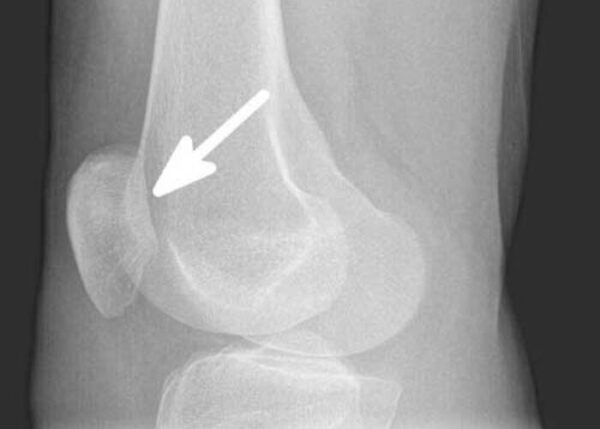What is the MPFL?
The MPFL is an acronym for the medial patellofemoral ligament. Similar to a strong rubber band, the ligament possesses elastic-like qualities and helps stabilize the kneecap as the knee moves. Its job is to prevent the kneecap from moving or dislocating to the outside of the knee (called lateral patellar subluxation or dislocation of the knee.) The MPFL is located in the center of the knee and runs from the femur (thigh bone) to about the middle of the patella (kneecap). Orthopedic knee surgeon, Dr. Armando Vidal specializes in treatment of the medical patellofemoral ligament, helping patients in Vail, Aspen and the surrounding Denver, Colorado communities recover from injury to the MPFL.

How does the medial patellofemoral ligament become injured?
The MPFL is most commonly injured when the kneecap dislocates. This can occur from a sporting event that involves pivoting, like football, basketball, racquetball and tennis. A MPFL tear can also be the result of an underlying knee abnormality or weak leg muscles that increase the risk for a kneecap dislocation. When the patella dislocates, it tears the MPFL structure on the inside of the knee.
What are the symptoms of a torn or injured MPFL?
Most but not all MPFL injuries are caused by a traumatic knee dislocation. Symptoms of an injured or torn medial patellofemoral ligament include:
- The knee feels unstable, like it will “give way”
- Feeling the kneecap slip while twisting or turning
- Pain in the kneecap with palpation or activity
- Swelling of the knee after activity
- Stiffness and/or a locking sensation after sitting with the knee bent for a period of time
How is an injured medial patellofemoral ligament injury diagnosed?
Dr. Vidal will obtain a thorough medical history, including symptoms and prior issues leading up to your visit. He will move the knee to test strength, range of motion and stability. X-Rays and MRI are very useful to determine the extent of the injury and other associated damage. Patients in Vail, Aspen and the surrounding Denver, Colorado communities will most likely have an MRI so Dr. Vidal can assess the knee and the ligament more thoroughly.
How is a torn MPFL treated?
Often this type of injury can be treated without the need for surgical intervention. If the dislocation was minimal and did not have additional injury, such as pieces of bone or cartilage being knocked loose, and if the patient has a normal patellar height when injured, surgery may be avoided. In these cases, Dr. Vidal will prescribe rest, administer medication, such as NSAIDs (non-steroidal anti-inflammatory drugs), and set up a physical therapy protocol.
In patients who are young, have recurrent dislocations, or in patients who have patella alta (high kneecap) or other underlying conditions; surgery may be required. It is important to see Dr. Vidal, who has had extensive experience with patients who have MPFL injuries, to receive the best treatment options for the best outcome.
What is an MPFL Reconstruction?
Medial patellofemoral ligament reconstruction is reserved for patients who have experienced a complete tear of the MPFL, or if non-surgical methods have failed to restore knee stability. During this procedure, Dr. Vidal replaces the injured ligament with a tendon, taken from the patient’s hamstring (autograft) or donor tissue, (allograft) and creates a new ligament. MPFL reconstruction has excellent results when performed properly and can be done on patients of all ages.
What is an MPFL Repair?
Repairing the medial patellofemoral ligament usually occurs after an acute injury, rather than a chronic injury. During this procedure, Dr. Vidal will use an anchor and strong sutures to hold the patella in place and prevent further dislocation. However, this type of repair is not often affective for chronic injuries, in which a graft reconstruction is better suited.
What is the recovery time after MPFL reconstruction?
Patients are placed in a brace following MPFL reconstruction but are allowed to bear weight on the leg right away. The brace is worn for about 6 weeks, during which time the patient will have physical therapy that involves passive motion and range of motion exercises. After 6 weeks, active physical therapy can begin which will strengthen the leg muscles and aid in recovery. Dr. Vidal’s patients often return to their sports activities 4-7 months following a medial patellofemoral ligament reconstruction.
MPFL Reconstruction Surgeon
Knee dislocations can have many lasting consequences, such as damage to the MPFL, an important ligament in the knee. When the knee dislocates, it can cause the MPFL to stretch or tear, resulting in a weak knee. Complex knee surgeon, Doctor Armando Vidal provides diagnosis as well as surgical treatment for patients in Vail, Aspen, and the surrounding Denver, Colorado communities who have dislocated their knee and are experiencing weak knees. Contact Dr. Vidal’s team today!

Locations
180 S Frontage Rd W
Vail, CO 81657
226 Lusher Court
Ste 101
Frisco, CO 80443
322 Beard Creek Road
Edwards, CO 81632


